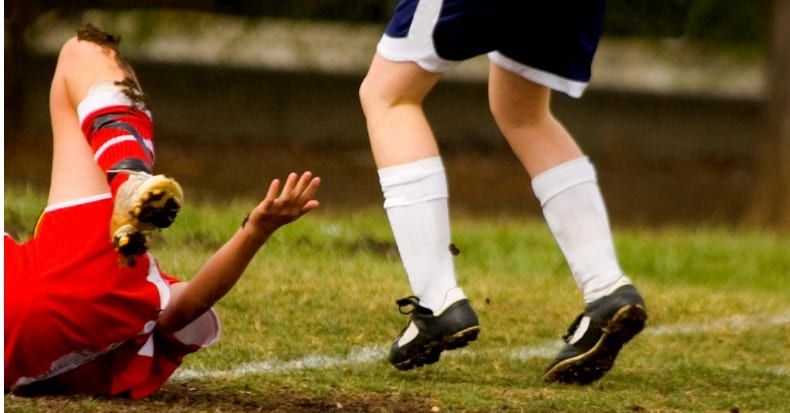There are over 3 million registered youth soccer players in the United States. While playing organized sports offers many benefits to children and teens, the activity also comes with the possibility of injury—especially knee injuries among female players.
There are two types of injuries associated with soccer: acute and overuse. Acute injuries have an immediate onset of symptoms and, typically, a clear cause of injury. For example, a player twists their ankle while making a sudden change in direction. Overuse injuries are caused by repetitive microtrauma that eventually results in an injury with no clear cause. In the world of youth soccer, overuse injuries account for a greater proportion of overall injuries.
One study looked at data concerning 12- to 15-year-old female youth soccer players in order to identify the rate and number of overuse injuries, the anatomic location, type of injury, and any risk factors for injury.
The researchers found that the incidence rate for first-time lower-extremity overuse injuries was 1.7 per 1,000 athlete-exposure hours (AEH) and for repeat injuries, 3.4 per 1,000 AEH. Players with knocked knees were 3.2 times more likely to have a knee injury, while those with stronger leg muscles (hamstrings and quadriceps) had a 30-35% lower risk for a knee injury. Additionally, those who played throughout the year had a 2.5 times higher risk for knee injury than those who only played on one team each year or who played a variety of sports. The findings underscore the importance of strengthening the leg muscles, avoiding sports specialization, and taking steps to correct faulty knee posture as a means for reducing the risk of knee injury in this population of athletes.
Doctors of chiropractic commonly treat athletes who participate in many different sports—both for recovering from injury and reducing the risk of injury in the first place—using a combination of manual therapies, specific exercises, and nutritional recommendations.



